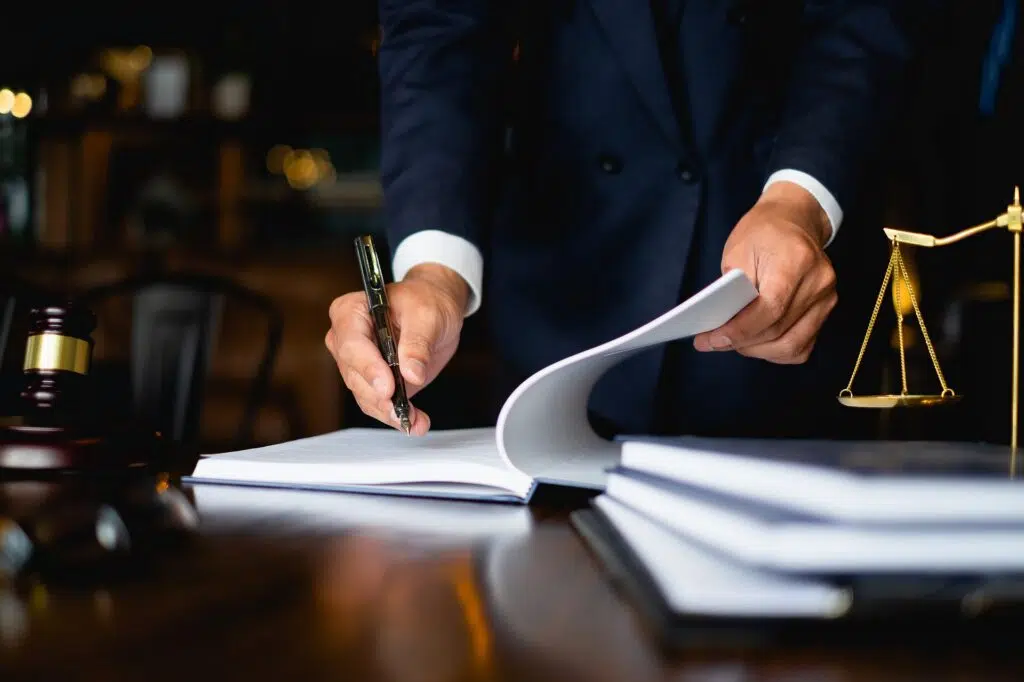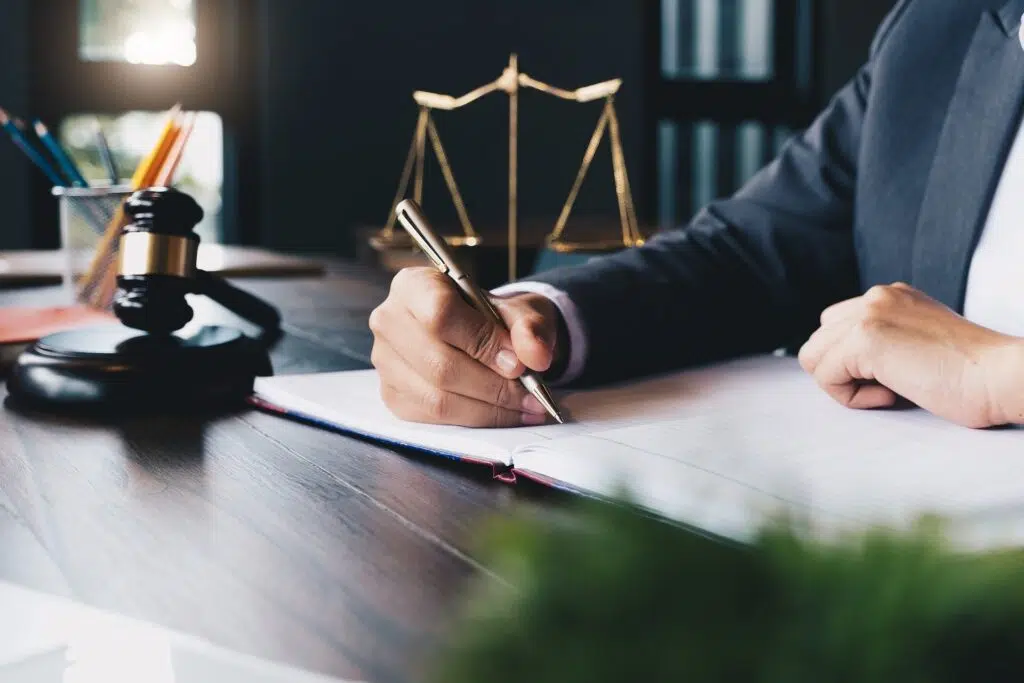The Legal Journey for Immediate Protection in Seattle Domestic Violence Cases
Relationships between dating partners, spouses, and family members are inherently complicated and nuanced. When disagreements arise, emotions can escalate and prompt individuals to make comments or take actions in the heat of the moment that they come to regret. Although every relationship encounters its fair share of highs and lows, not all marriages or partnerships are built to withstand the test of time. Unfortunately, survivors of domestic violence at the hands of a spouse or intimate partner may fear that attempting to leave the relationship will jeopardize their physical safety (and even the safety of their children). According to the National Domestic Violence Hotline, the top reasons why survivors of domestic violence stay in these relationships include fear, shame, intimidation, low self-esteem, and lack of resources. In other words, they worry about the abuser’s potentially violent reaction to their attempts to leave the marriage or partnership. It’s important to understand that even those who desperately want to leave an abusive relationship may be too overwhelmed or afraid to take the necessary steps to do so.
Feeling alone and isolated is one of the most significant obstacles to leaving an abusive marriage. However, as intimidated as you may feel at the thought of seeking a divorce or legal separation from an abusive partner, you do not have to take any steps on your own. Enlisting the guidance of a compassionate Seattle divorce and domestic violence attorney is the best way to understand your legal options and make informed decisions that allow you to regain control of your life. Washington state offers several types of domestic violence legal protections that can be tailored to address your specific needs and goals. This post will highlight some of the legal protections available to survivors of domestic violence, including an immediate restraining order that’s designed to shield you from imminent harm at the hands of an abusive spouse or intimate partner.
Domestic Violence Protection in Seattle
Washington state provides several types of legal protections that compel an abuser (known as the respondent) to cease all attempts to contact or interact with the survivor (known as the petitioner). Essentially, King County allows survivors of domestic abuse, harassment, stalking, physical violence, or coercive control to petition the court for legal protection from the respondent. It’s important to recognize that these types of protection orders are filed in civil court, which means that the petitioner may make this request for legal protection whether or not the respondent has been arrested or charged with a domestic violence or assault offense. Moreover, the petitioner may file the paperwork at any time; however, seeking a domestic violence protection order can be especially critical for those initiating the divorce or legal separation process. The weeks and months spent separating from an abusive partner tend to be the most dangerous, as abusers often tend to escalate their threats and acts of violence in order to control the survivor and intimidate them into remaining in the relationship. If you are worried about your safety during this turbulent time, enlist the support of a dedicated and empathetic Seattle domestic violence restraining order lawyer who can guide you through every step of the petitioning process while ensuring your safety as much as possible. Below are a few of the most common types of civil protection orders available to King County residents.

Domestic Violence Protection Order
A domestic violence protection order (DVPO) protects the petitioner from abusive intimate partners, family members, or housemates. According to the Washington state court system, domestic violence can include “controlling behavior (‘coercive control’),” which means a pattern of physical, emotional, or mental abuse that attempts to limit the petitioner’s autonomy and independence. Coercive control tends to develop over time, as the abuser slowly erodes their partner’s self-reliance or access to resources. For example, a spouse who limits their partner’s access to bank accounts and guilts them into severing ties with family members and friends is likely exhibiting coercive control. A DVPO will prohibit contact of any kind (i.e., phone calls, text messages, in-person, online, etc.) between the respondent and the petitioner. The terms of the DVPO can be tailored to address the specific circumstances and needs of the petitioner. Depending on your situation, the DVPO may be used to remove the abuser from your shared residence, grant temporary custody of children to the petitioner, order the abuser into mandatory treatment or counseling, or order the respondent to surrender the possession of all firearms and dangerous weapons. If you think that a DVPO may work best for your situation, reach out to a highly qualified domestic violence restraining order attorney to learn more.
Antiharassment Protection Order
Those who have endured unwanted contact or behavior that causes significant emotional distress can petition the court to obtain an antiharassment protection order (AHPO). This type of legal protection shields the petitioner from suffering continued harassment and abuse from the respondent that is seriously alarming, annoying, harassing, or otherwise detrimental to their well-being. Similar to the DVPO, the terms of the AHPO may be tailored to suit individual needs and circumstances. When you fill out the AHPO petition, you can request that the respondent cease all contact of any kind and be prohibited from coming within a specific distance from your home, workplace, or other venue that you frequent. Once the court issues the AHPO, the respondent must surrender the possession of firearms, dangerous weapons, and concealed pistol licenses.
Stalking Protection Order
Another powerful form of legal protection is a stalking protection order (SPO). The purpose of an SPO is to “protect against stalking behavior that serves no lawful purpose and has reasonably caused the protected person to feel intimidated, frightened, under duress, significantly disrupted, or threatened.” As you complete the petition for an SPO, you can indicate the types of legal protections you need as well as the specific behaviors that the respondent should be prohibited from engaging in (such as showing up at your residence or workplace, sending you emails, commenting on your social media posts, etc.). Your knowledgeable and caring Seattle domestic violence protection lawyer can offer you much-needed support and guidance during this challenging time, answering your questions at every turn.
Domestic Violence Restraining Order Timeline
If you are seeking one of the above protection orders (or a sexual assault protection order or an extreme risk protection order), the filing process is pretty much the same. Washington now offers one streamlined Petition for Protection Order document that allows the petitioner to indicate the type of protection order they are seeking. Instead of having to sort through six different petitions to determine which protection order to choose, this revised petition aims to simplify the process for petitioners and remove as many barriers as possible. When you file the petition, you can request that the court issue a Temporary Protection Order (TPO) that offers immediate protection from an abuser during a short period of time (until the matter can be adjudicated). In most cases, TPOs are issued to protect those who are in immediate danger of violence or harm, and this type of protection order only lasts until a full hearing can be set and heard (typically two weeks). Your domestic violence restraining order attorney will help you pursue a TPO. However, even if the court denies your request for a TPO, you and your attorney can explore other strategies to ensure your safety during this challenging and vulnerable time. Once the hearing concludes, the court’s decision to issue a protective order will go into effect—most DVPOs, AHPOs, SPOs, and other protective orders last one year and may be renewed if the safety concerns remain.

Seeking an Immediate Protection Order in King County
Fearing for your safety is extremely stressful, especially if your spouse, dating partner, or family member is using threats or intimidation to prevent you from leaving an unhealthy relationship. However, as hopeless as things may feel right now, there are several paths to a safe and stable future. When you enlist the help of a compassionate and trusted domestic violence restraining order lawyer, you can begin extricating yourself from a dangerous environment and move forward into a brighter future. There are several advantages to working with a highly qualified Seattle domestic violence protection attorney, as this trusted legal advocate will help you secure swift protective measures, guide you through the legal intricacies of the petitioning process, and take all necessary legal actions to safeguard your well-being. You do not have to ensure continued abuse and coercive control—reach out to an empathetic and understanding Seattle attorney today to start reclaiming your life.
The divorce or legal separation process is stressful enough. However, if you are concerned about your safety during this vulnerable time, the dedicated and knowledgeable legal team at the Hemmat Law Group is here to help you explore your options for securing immediate legal protection from an abusive partner. Call our Seattle office today at (206) 682-5200 to get started with an experienced and compassionate divorce and domestic violence attorney.
The Hemmat Law Group (HLG) was founded in 1994 by Steven Amir Hemmat, a former DOJ Trial Attorney. We specialize in family law, supporting victims of the legal system.
The Hemmat Law Group help good people in bad situations.
Our lawyers provide expert legal advice connected to protection orders, including in cases of domestic violence, stalking, and neighbor disputes. Contact us today.













